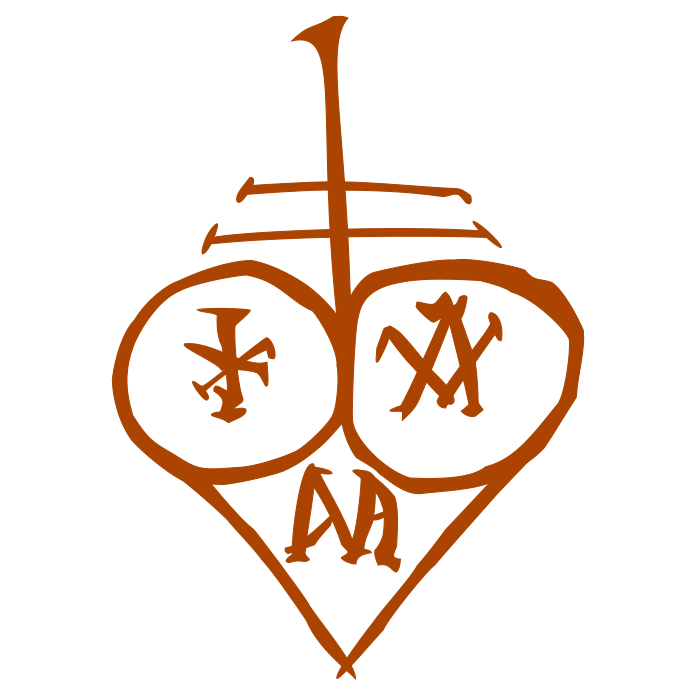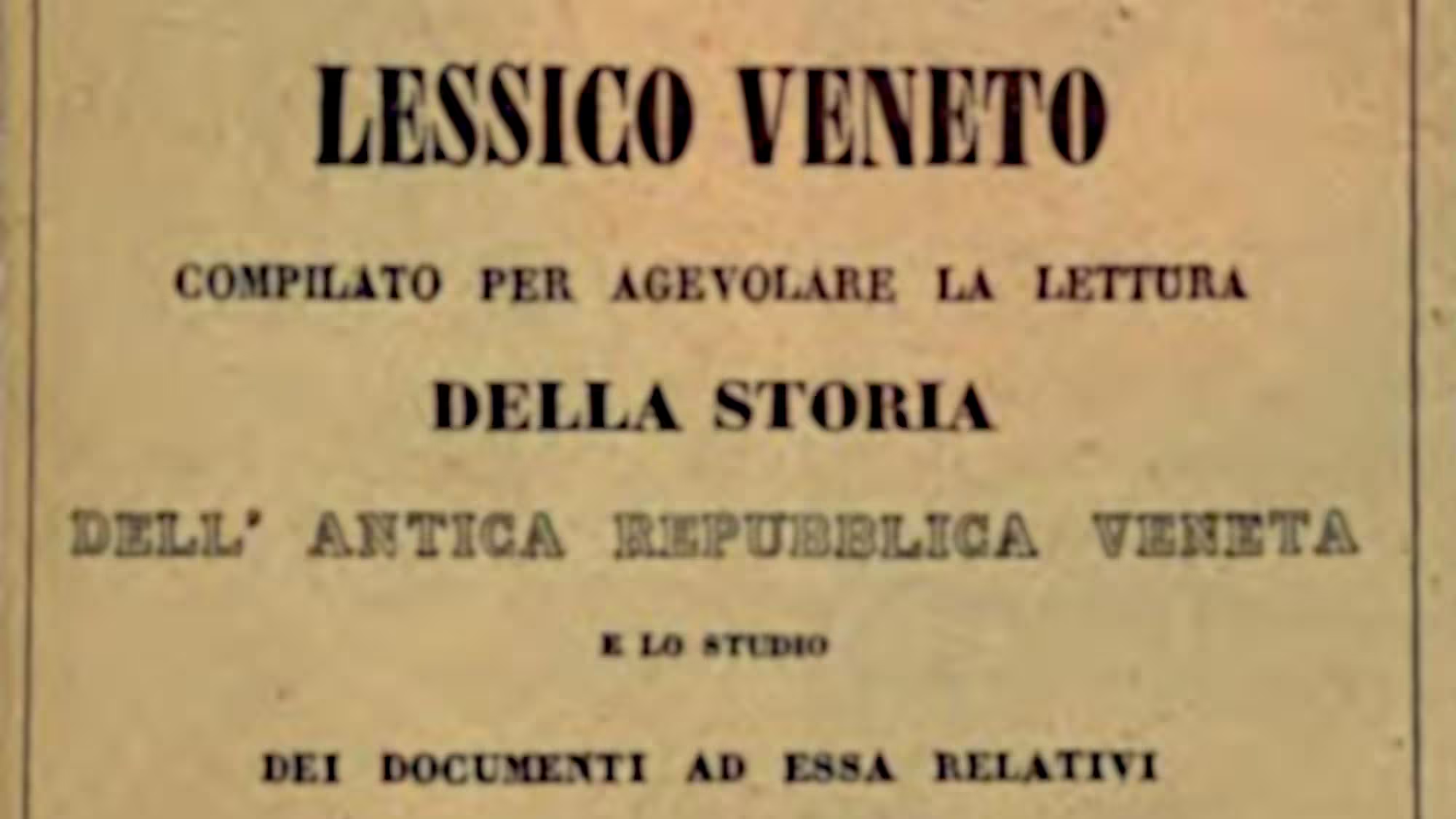Meretrici — Harlots
The Lessico Veneto (Venetian Vocabulary) by Fabio Mutinelli was published in 1851. It is an invaluable tool for anybody who reads texts from the time of the Republic of Venice.
Fabio Mutinelli (1797-1876) was director of the I. R. Archivio Generale di Venezia (1847-1861), and a prolific writer on the history of Venice.
HARLOTS. The Executors against Blasphemy1 were delegated by the Council of Ten to curb the brazen behaviour of prostitutes: for this purpose in various times several laws were made, which can truly be summarized in the following decree.
« 13 August 1644 in the Senate. –
Following the good zeal and application of the above Assistant Superintendents and Superintendents of Luxury2 against disorders and ostentations in matters of pomp, it is also necessary to regulate and stop the many and very serious ones introduced by the public prostitutes, therefore let it be decreed,3 that as for the household supplies these types cannot used other than golden leather that are not with blue painting, or reliefs, chairs with bovine leather, or of inferior materials, with plain nails or knobs, similar stools, either of walnut, or covered in leather, chests of bovine leather, or walnut, without brocades, beds of wood, or gilded, silvered or painted iron, four-poster beds with tents, canopies and curtains of materials of thread, and silk without any other ornament than simple fringes of silk, and nothing other than forks, spoons, salt shakers and saucers of silver under penalty of one hundred and fifty ducats for each transgression.
As for the clothes, they must comply with the laws of this Council, and with the decisions of the Magistracy in this regard, that is, that it be made of nothing other than a simple cloth of entirely plain wool, they are however permitted for the present, the use of clothes of tafetta, ermine and silk cloth, and nothing else of any kind with express prohibition of any kind of gold, jewels, good or fake pearls and similar things under penalty of fifty ducats.
They cannot wear the white headscarf of the unmarried woman4 anywhere whatsoever under penalty of fifty ducats and six months of prison, which penalties are understood to be taken together with a single ballot. They must not have a house on the Grand Canal nor pay more than one hundred ducats in rent.
… They must not go along the Grand Canal at the time of the Corso … and they must not attend any solemnities in church, absolutions, or other devotional events, nor go wandering around the city in a boat with two oars, and the rowers, or their masters who accuse the prostitutes, if these are punished, are understood to be absolved and to have earned twenty-five ducats, which shall be kept secret.5
All the things that are not permitted, are understood to be explicitly prohibited, as if they were named one by one, and this in the city as well as in the state,6 at home and outside, masked or not, on any occasion, and in any and every form of dress …
Those already convicted once, for each new transgression will have their sentence doubled, and four months of imprisonment … »
It is then noted that prostitutes and pimps could not be witnesses in criminal trials, and this for being considered infamous, except in the case of events that occurred in the brothel, or others of which the truth could not be discovered except through them. Finally, those who had promised the prostitutes something as the price of their depravity were obliged to pay it by conscience, but the prostitutes were not heard in court if they asked for the unfulfilled payment for the depravity itself.
Translator’s notes
- The Magistrato de la Biastema was in charge of laws and rules about blasphemy and vice in general, including gambling and prostitution. ↩︎
- The Proveditori alle Pompe were in charge of laws and rules against excessive luxury and ostentation. ↩︎
- The Venetian words però l’andarà parte is a frozen ideom which indicates that what follows are the new provisions. ↩︎
- The fazuol bianco da fia was for ‘decent’ young unmarried women — the prositutes weren’t allowed to hide that they were not ‘decent’. ↩︎
- The Venetian state, like most states at the time, didn’t have a police force in our sense of the words. Law enforcement largely relied on anonymous informants — see also A Venetian Law. ↩︎
- The ‘city’ is what we call Venice, which they called La Dominante, and the ‘state’ is everything outside the city. ↩︎
I have added paragraph breaks for better readability.
Original Italian text
MERETRICI. Gli Esecutori contro la bestemmia delegati furono dal Consiglio dei Dieci a frenare lo sfacciato contegno delle meretrici : a questo fine in diversi tempi fatte venivano più leggi, le quali veramente dir si possono epilogate nel seguente decreto. « 13 agosto 1644 in Senato. – Seguendo il buon zelo e l’applicazione degli Aggionti sopra Proveditori e Proveditori alle Pompe in proveder a’ disordini e lussi in materia di pompe si deve ben anco poner regola e freno a questi molti e gravissimi introdotti dalle publiche meretrici, però l’anderà parte, che quanto a’ fornimenti di casa non possano
queste tali usar altro , che quoridoro (cuoi d’oro) che non siano con azuro ,
pittura, o relievo, carieghe (sedie ) di bulgaro , o di cosa inferiore, con broche o pomoli schietti, scagni simili, o di nogara (noce), o coperti di quoro, casse di bulgaro, o nogara, senza broccature, littiere di legno, o ferro dorato, argentato o dipinto, pavioni (padiglioni), tornaletti, o trabache di roba di filo, e seta senza alcun altro ornamento che di semplice franze
di seta, et nou altro che pironi (forchette), cucchiari , saliera et sottocope di argento in pena contrafacendo di ducati cento e cinquanta per ogni transgressione . Quanto agli habiti debbano stare alle leggi di questo Consiglio, et alle terminazioni del Magistrato in questo proposito, cioè che non sia de altro che de semplice drappo di lana intieramente schietta, le sia però per messo per vigor della presente l’uso di robbe di cendale, orme
sino e canevazzetta di seta, e non altro di qualunque sorte con prohibitione espressa de ogni sorte d’ ori, gioie, perle buone o false e cose simiglianti in pena di ducati cinquanta per contrafazione. Non possano portar in locho alcuno il fazuol bianco da fia (donzella) sotto pena di ducati cinquanta , et di mesi sei di preggion, quali pene se intenderano prese unitamente con una
sola ballotatione. Non debbano haver casa sopra canal grande nè pagar più de ducati cento d’affitto. … Non vadano per canal grande all’ hora del corso … et non debbano capitar in alcune solennità in chiesa, perdoni , o altri concorsi di devotione, nè andar vagando per la città in barca a doi (due) remi, dovendo li servitori, o massere che le acusassero, castigate che siano le meretrici , intendersi assolti et haver guadagnato ducati vinticinque e tenuti secreti , Tutte le cose non concesse siano, et se intendano espressamente prohibite, come se fossero nominate ad una per una e ciò tanto in città quanto nel stato , in casa e fuori, mascherate o nò , in qualunque occasione, et in ogni et qualunque forma de habito … Alle condannate una volta per ogni nova transgressione sia dupplicato la condanna, et mesi quattro di preggione … »Si avverte poi, che le meretrici ed i ruffiani non potevano essere testimonii nei processi criminali , e ciò per essere considerati infami, tolto il caso però di fatti avvenuti nel lupanare , o di altri dei quali non si avesse potuto scoprire la verità se non col mezzo loro . Finalmente, quelli che avessero promesso alle meretrici alcuna cosa a prezzo della lor turpitudine, n’erano tenuti al pagamento in coscienza, ma le meretrici non erano ascoltate in giudicio qualora chiesto avessero il non adempiuto pagamento alla turpitudine stessa .
pp. 259-260
Related articles
- Prostitution in Venice
- Però l’anderà parte — vadit pars
- Fornicators of Nuns
- A Venetian Law
- State institutions of the Republic of Venice
- Magistrato de la Biastema — Boerio
- Esecutori contro la Bestemmia — Lessico Veneto


Leave a Reply